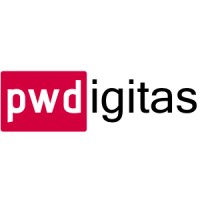How to choose the Most Suitable Content Management System (CMS) Based on Your Needs and Requirements
As an experienced webmaster, developer, or system administrator, you understand that selecting the right Content Management System (CMS) is crucial for the success of your web projects. With countless options available, each boasting unique features and capabilities, the decision-making process can feel overwhelming. This guide will walk you through the essential factors to consider when choosing a CMS, ensuring you make an informed decision aligned with your specific needs and requirements.

Key Considerations for CMS Selection
Before diving into specific CMS options, it's vital to establish a clear understanding of your project's scope, technical demands, and long-term goals. Consider the following factors:
1. Scalability and Performance
Anticipate your website's future growth and traffic demands. Choose a CMS that can accommodate increasing content volumes, user traffic, and potential feature expansions without compromising on performance. Evaluate the CMS's architecture, database efficiency, and caching mechanisms to ensure optimal speed and responsiveness as your website evolves.
2. Security and Maintenance
Prioritize the security of your website and user data. Opt for a CMS with a strong security track record, regular updates, and robust security features. Assess the CMS's vulnerability patching process, community support, and availability of security audits to mitigate potential risks. Remember that even with a secure CMS, you need to take steps to secure your server. This includes using SSH to connect to your web server instead of FTP.
3. Ease of Management and Customization
Evaluate the CMS's user interface, content editing experience, and overall ease of management. Determine the technical skillset required to effectively manage the platform, install updates, and troubleshoot issues. Assess the CMS's flexibility in terms of customization, theme options, and plugin availability to align with your desired design and functionality.
4. SEO Friendliness and Marketing Capabilities
For optimal search engine visibility, prioritize a CMS that follows SEO best practices. Look for features like customizable URLs, meta descriptions, and XML sitemap generation. Consider built-in marketing tools or integrations with third-party platforms for analytics, email marketing, and social media management.
Evaluating Popular CMS Options
Once you clearly understand your requirements, you can begin evaluating popular CMS options based on your specific needs. Here's a brief overview of some widely used platforms:
- WordPress: Known for its ease of use, extensive plugin library, and large community support, WordPress is an excellent choice for blogs, business websites, and e-commerce sites. However, its reliance on plugins for advanced functionality can sometimes lead to security vulnerabilities or performance issues if not managed carefully.
- Drupal: Geared towards developers and experienced users, Drupal offers exceptional flexibility, scalability, and security. Its steep learning curve and complex architecture might not be suitable for beginners or projects with limited technical resources.
- Joomla!: Positioned between WordPress and Drupal in terms of complexity and flexibility, Joomla! provides a robust platform for various website types, including membership sites, online communities, and multilingual platforms. Its extensive customization options and active community make it a viable option for experienced users.
Making the Right Choice
Selecting the right CMS requires careful consideration of your project's specific requirements, technical expertise, and long-term goals. By prioritizing scalability, security, ease of management, and SEO capabilities, you can narrow your options and choose a platform that empowers you to create a successful and sustainable online presence. Don't be afraid to experiment with different CMS options using a local development environment or demo versions to gain practical experience and determine the best fit for your needs.















